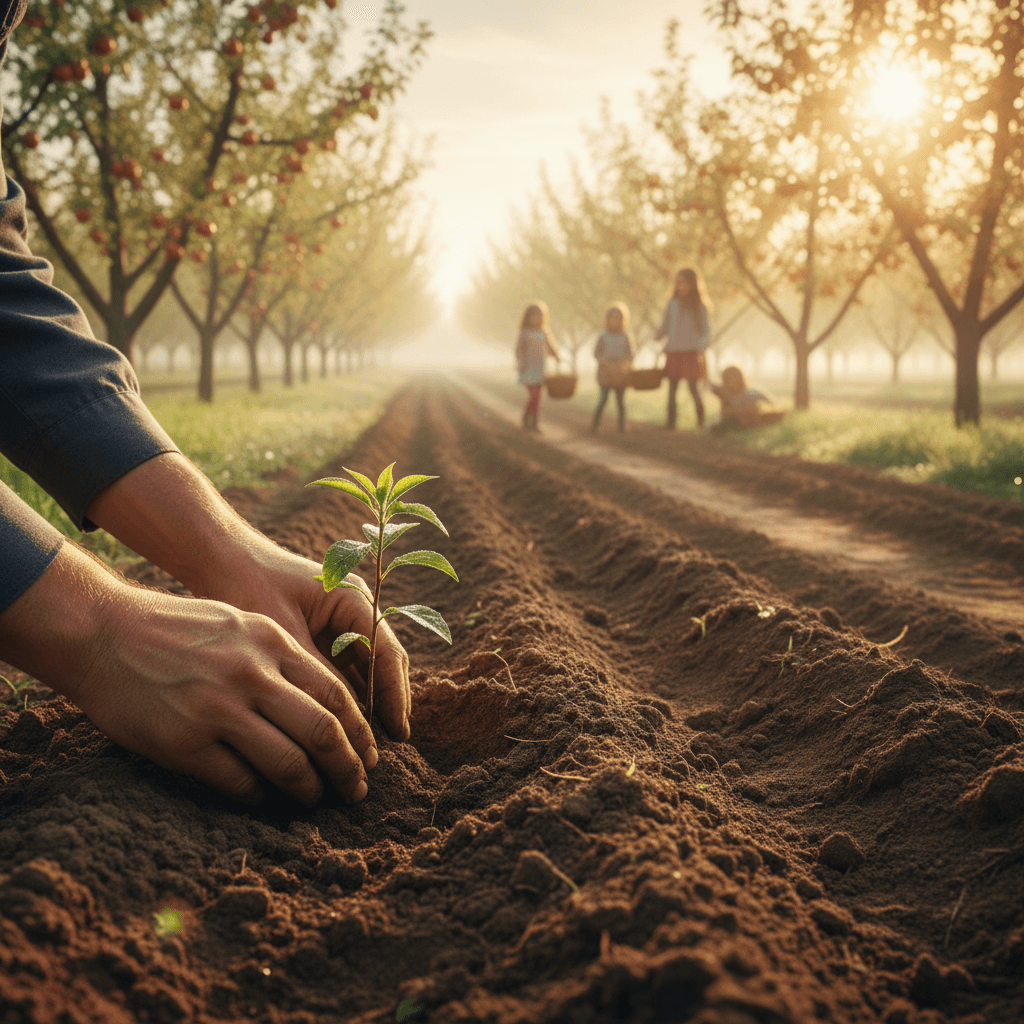Sowing Hope for Hands Yet to Come

Plant hope today so future hands can gather its fruit. — Chinua Achebe
—What lingers after this line?
One-minute reflection
What feeling does this quote bring up for you?
The Seed and the Future
At the outset, the farming image reminds us that hope behaves like a seed: it is buried in uncertainty, tended with patience, and harvested later—often by someone else. Planting, then, is an act of trust in time and in community. We invest in a harvest we may never taste, acknowledging that continuity, not immediacy, is the measure of meaningful work.
Achebe’s Communal Vision
Building on this, Chinua Achebe’s fiction draws power from Igbo oral wisdom, where personal action is braided with communal destiny. In Things Fall Apart (1958), he notes that “proverbs are the palm-oil with which words are eaten,” signaling that guidance is meant to be shared and passed on. The proverb-like cadence of his line about planting hope situates responsibility in the present while honoring those who will inherit its results.
Literary Legacies Across Generations
Consequently, Achebe’s characters reveal how today’s choices ripen into tomorrow’s conditions. Okonkwo’s rigidity in Things Fall Apart (1958) echoes painfully in his son Nwoye’s alienation, illustrating how fear can be a bitter seed. Likewise, No Longer at Ease (1960) follows Obi Okonkwo, whose entanglements show how colonial histories and familial expectations bear fruit in a new era. Literature, in this light, becomes a ledger of what was planted—and what grew.
Earthkeeping as a Hopeful Practice
Moreover, environmental movements translate the metaphor into soil and shade. Wangari Maathai’s Green Belt Movement (founded 1977) mobilized Kenyan women to plant tens of millions of trees, tangible promises that outlived their planters; her memoir Unbowed (2006) chronicles how saplings became social and ecological resilience. Similarly, the Svalbard Global Seed Vault (opened 2008) stores crop diversity so future farmers can replant after catastrophe—hope, sealed and chilled, awaiting hands not yet born.
Policy, Foresight, and Shared Harvests
Extending further, public health and education show how societies plant for distant seasons. Vaccination campaigns that culminated in smallpox eradication (WHO, 1980) began as small, localized efforts, while schooling investments often pay dividends a generation later. This ethos echoes the Haudenosaunee “seven generations” principle and inspires “cathedral thinking,” the long-span mindset behind projects like the Long Now Foundation’s 10,000-Year Clock. Good policy, like good gardening, aligns patience with purpose.
Everyday Acts that Outlast Us
Finally, the metaphor returns to our daily lives. Mentoring a teenager, founding a reading circle, or planting a neighborhood orchard are modest seeds whose fruit others will gather. A city that installs saplings along a barren street may only see their full canopy decades on, yet children will walk in the shade. Thus, by sowing hope now—through care, craft, and coalition—we join a quiet lineage that measures success by the harvest of future hands.